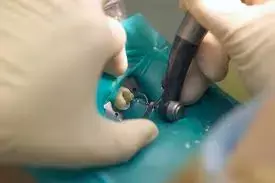- Home
- Medical news & Guidelines
- Anesthesiology
- Cardiology and CTVS
- Critical Care
- Dentistry
- Dermatology
- Diabetes and Endocrinology
- ENT
- Gastroenterology
- Medicine
- Nephrology
- Neurology
- Obstretics-Gynaecology
- Oncology
- Ophthalmology
- Orthopaedics
- Pediatrics-Neonatology
- Psychiatry
- Pulmonology
- Radiology
- Surgery
- Urology
- Laboratory Medicine
- Diet
- Nursing
- Paramedical
- Physiotherapy
- Health news
- Fact Check
- Bone Health Fact Check
- Brain Health Fact Check
- Cancer Related Fact Check
- Child Care Fact Check
- Dental and oral health fact check
- Diabetes and metabolic health fact check
- Diet and Nutrition Fact Check
- Eye and ENT Care Fact Check
- Fitness fact check
- Gut health fact check
- Heart health fact check
- Kidney health fact check
- Medical education fact check
- Men's health fact check
- Respiratory fact check
- Skin and hair care fact check
- Vaccine and Immunization fact check
- Women's health fact check
- AYUSH
- State News
- Andaman and Nicobar Islands
- Andhra Pradesh
- Arunachal Pradesh
- Assam
- Bihar
- Chandigarh
- Chattisgarh
- Dadra and Nagar Haveli
- Daman and Diu
- Delhi
- Goa
- Gujarat
- Haryana
- Himachal Pradesh
- Jammu & Kashmir
- Jharkhand
- Karnataka
- Kerala
- Ladakh
- Lakshadweep
- Madhya Pradesh
- Maharashtra
- Manipur
- Meghalaya
- Mizoram
- Nagaland
- Odisha
- Puducherry
- Punjab
- Rajasthan
- Sikkim
- Tamil Nadu
- Telangana
- Tripura
- Uttar Pradesh
- Uttrakhand
- West Bengal
- Medical Education
- Industry
Cryotherapy Effectively Reduces Postoperative Pain After Root Canal Treatment, suggests study

Researchers have found in a new study that Cryotherapy may significantly reduce postoperative pain in single-visit root canal treatments of molars with pulp necrosis and symptomatic apical periodontitis (SAP). This offers a biocompatible, cost-effective, and simple pain management option.
The present study aimed to assess the effects of intracanal cryotherapy on pain following single-visit non-surgical root canal treatment (NSRCT) of molar teeth with pulpal necrosis and symptomatic apical periodontitis (SAP).
This parallel-two arm, single-blind, randomized superiority clinical trial was registered at www.clincaltrials.gov (NCT05611736). Patients referred for NSRCT meeting the inclusion criteria were included. Preoperative radiographs, pulp sensibility tests, and pain scores on the visual analog scale (VAS) were recorded. Following shaping and cleaning, 302 patients were randomly allocated to the two groups (n = 151). In the experimental group, final irrigation was done using 0.9% physiologic saline solution at 2.5 °C, whereas in the control group, final irrigation was done using the same solution at room temperature.
All treatments were performed in a single visit. Analgesics intake and presence, duration, and intensity of pain using the VAS at 6, 24, 72 h, and 1 week were recorded. Any adverse events were recorded. Data was analyzed using the Mann–Whitney U test and the Student's t test (P < 5%). Results: Patients in the cryotherapy group had significantly less postoperative pain at 6, 24, and 72 h (P < 0.05). There was no difference in postoperative pain at 1 week (P > 0.05). No adverse event was recorded in either group during or immediately after root canal treatment. Cryotherapy significantly reduces postoperative pain in single-visit root canal treatment of molars with pulp necrosis and SAP.
It can be considered a biocompatible, economical, and straightforward method for managing postoperative pain.
Reference:
Ahmad MZ. Effects of intracanal cryotherapy on postoperative pain in necrotic teeth with symptomatic apical periodontitis: a randomized controlled clinical trial. Front Dent Med. 2025;6. doi:10.3389/fdmed.2025.1543383.
Dr. Shravani Dali has completed her BDS from Pravara institute of medical sciences, loni. Following which she extensively worked in the healthcare sector for 2+ years. She has been actively involved in writing blogs in field of health and wellness. Currently she is pursuing her Masters of public health-health administration from Tata institute of social sciences. She can be contacted at editorial@medicaldialogues.in.
Dr Kamal Kant Kohli-MBBS, DTCD- a chest specialist with more than 30 years of practice and a flair for writing clinical articles, Dr Kamal Kant Kohli joined Medical Dialogues as a Chief Editor of Medical News. Besides writing articles, as an editor, he proofreads and verifies all the medical content published on Medical Dialogues including those coming from journals, studies,medical conferences,guidelines etc. Email: drkohli@medicaldialogues.in. Contact no. 011-43720751


